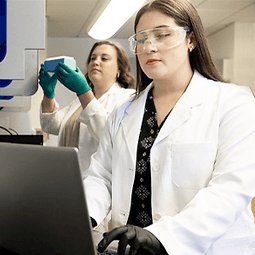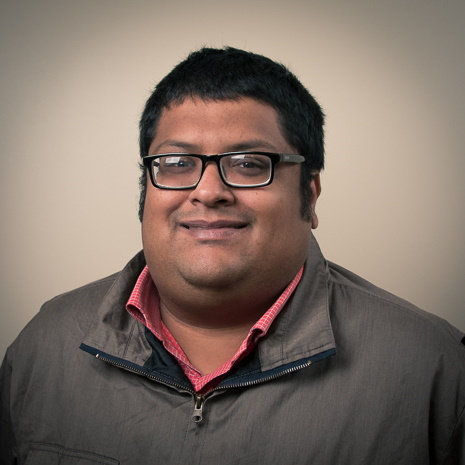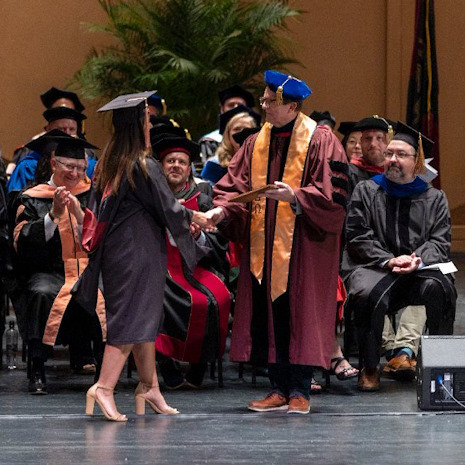
Find Out More
Epidemiologists design and conduct investigations aimed at improving the health of groups of people by combining knowledge from the social sciences, medicine, biology, the environment, and statistics.
May 13, 2025 | Erin Bluvas, bluvase@sc.edu
“My experience at the University of South Carolina has been incredibly vibrant and transformative,” says May graduate (Ph.D. in Epidemiology) Rajat Das Gupta, a physician from Bangladesh.
He found incredible support and friendship in USC’s international community, connecting with others like fellow epidemiology student and roommate Maxwell Akonde and learning life skills/lessons and experiencing many firsts, such as how to drive and cook, the ins and outs of culture in the American South, and his first snowfall and sighting of the Northern Lights. Immersed in campus culture, Gupta loved learning about American football and sharing his passion for cricket.
“USC has truly been a place of growth, learning and community for me,” he says.
Gupta studied medicine as an undergraduate at the University of Dhaka and earned a Master of Public Health from BRAC University. During his master’s program, he was awarded a tropical diseases research fellowship at the World Health Organization in Switzerland, won the Allan Rosenfeld Award for best academic performance, the Sir Fazle Hasan Abed Award for Leadership, and the Vice Chancellor's Gold Medal.
He then worked at the Centre of Excellence for the Science of Implementation and Scale-up at the BRAC James P Grant School of Public Health. It was during this time that he became aware of the factors that influence the success or failure of Bangladesh’s various public health programs. Gupta realized that strategic approaches – like combining family planning with cultural aspects like religion – were more likely to be successful in public health goals such as reducing unplanned pregnancies and maternal mortality rates.
A Ph.D. in Epidemiology was the next step in learning how to design and implement these types of interventions in other areas (e.g., tobacco control), and he chose USC for its internationally recognized program, the large Bangladeshi population (both current students and proud alumni), and the opportunity to work with epidemiology and biostatistics chair Anthony Alberg.

At the Arnold School, Gupta developed expertise in several areas of epidemiology, including cancer, obesity, nutrition and cardiovascular disease. The Presidential Fellow won 10 major awards for research, service and diversity/social justice and has published an astounding 113 peer-reviewed papers and a book chapter (co-authored with Alberg) in the past six years.
“Dr. Alberg's roles as a faculty member, administrator and supervisor have significantly influenced my professional growth,” Gupta says. “His leadership skills, demonstrated in his role as department chair, have notably shaped my own leadership abilities.”
Committed to service, Gupta has mentored numerous students, honed his teaching skills and served in multiple editorial roles. He’s led the USC Graduate Student Association as president and vice president and led the Bangladesh Student Association as president as well. Across these endeavors, Gupta has maintained a 4.0 GPA.
After graduating with the Arnold School’s 2024 Doctoral Achievement Award, he will begin a postdoctoral fellowship at Vanderbilt University Medical Center to continue his training and research in molecular and genetic epidemiology in cancer.
“My doctoral program prepared me to apply advanced epidemiological and biostatistical
methods in both academic and non-academic settings, such as with the state’s Central
Cancer Registry at the South Carolina Department for Health and Environmental Control,”
Gupta says. “I was able to gain practical experience evaluating data related to the
prevalence, risk factors and outcomes of lung cancer to better inform policymakers
and public health professionals. I look forward to continuing to build knowledge in
the areas of cancer and chronic disease throughout my career.”

Epidemiologists design and conduct investigations aimed at improving the health of groups of people by combining knowledge from the social sciences, medicine, biology, the environment, and statistics.

The Arnold School is proud of our 2025 graduates, who will go on to change the world locally and globally. Learn about some of the other outstanding individuals who completed one of our 34 programs this year.